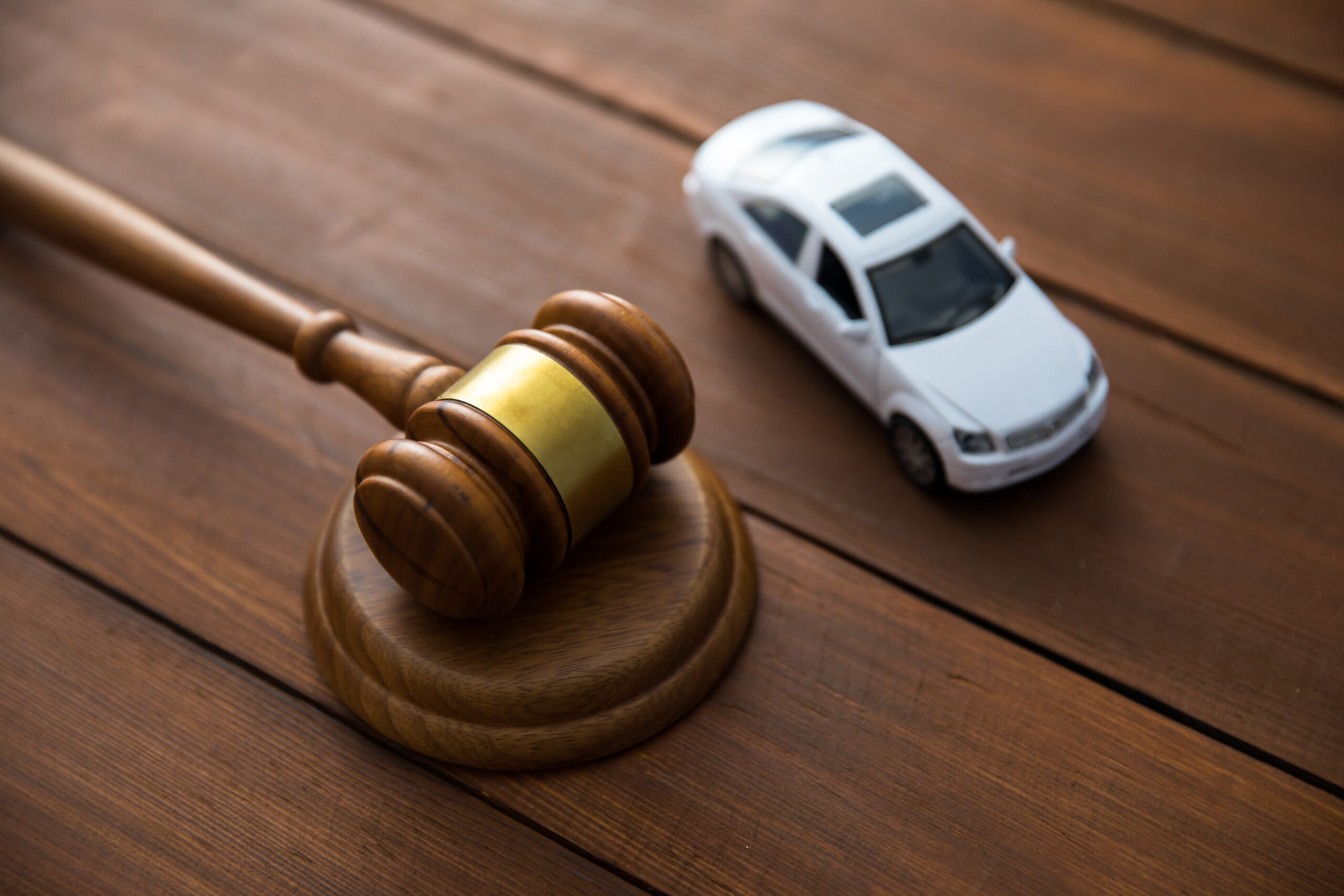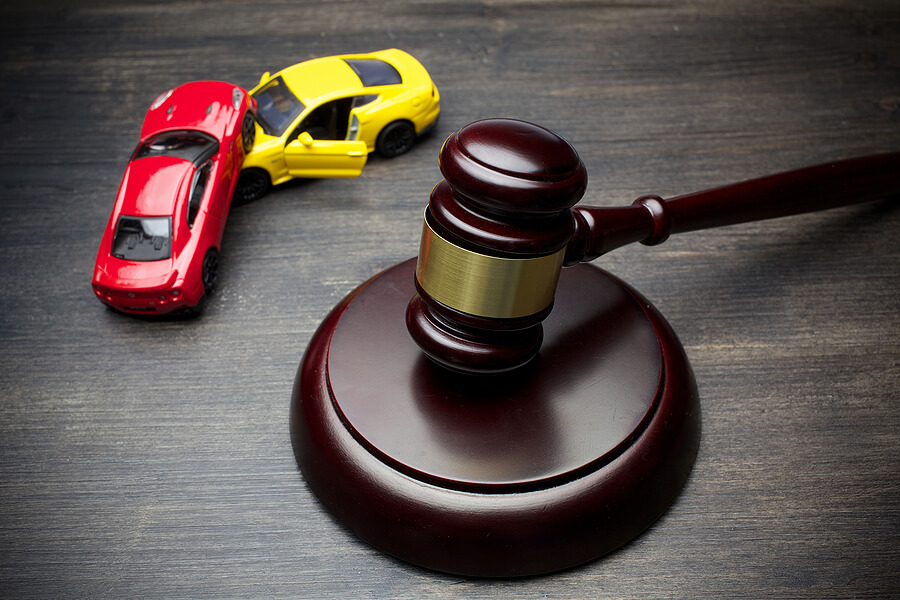How Long After a Car Accident Can You Claim Injury?
Auto AccidentsHow long after a car accident you can claim injury depends on the local jurisdiction. If you or a loved one suffered injuries in a car accident, you need to act quickly to protect your legal rights to financial compensation.
Speak to an experienced car accident lawyer about the specifics of your case. You want a legal professional to review your case damages and strategize a plan for obtaining an optimal outcome.
Schedule a free consultation to get started right away.
Statute of Limitations for Filing Car Accident Injury Claims

The statute of limitations is how long after a car accident you can claim injury. They vary with state jurisdiction, ranging from one to six years. The statute of limitations in South Carolina is three years from the date of the auto collision.
Statutes may increase in certain circumstances, such as regarding minors. A local car accident attorney will meet the deadlines in your state.
Why You Should Act Promptly After a Car Accident
In addition to state statutes, you must act quickly after an auto collision to safeguard your health. Even if you don’t feel injured after a car accident, have a licensed medical professional evaluate you.
Adrenaline is a powerful hormone released in high-stress situations, which can mask pain and other symptoms of injury. Hidden injuries can become exacerbated or even fatal if left undetected, such as internal bleeding. You need swift evidence collection to protect your legal rights.
Evidence Preservation
The sooner you act, the better chance your car accident attorney has of recovering and preserving evidence before it is tainted or destroyed.
Video surveillance is a prime example of evidence that can be lost quickly. Retention periods for traffic camera footage vary by state, averaging a week to 30 days. Some locations use live-stream cameras. In those cases, footage may immediately disappear because they don’t intend to record.
An attorney investigates the accident scene, searches for all possible security cameras, and will request access to footage when applicable. Many commercial buildings and residences have security systems.
Protection of Legal Rights
Contrary to popular belief, insurance companies do not prioritize a claimant’s best interests.
An insurance claims adjuster may seem concerned, friendly, and eager to help. However, their primary goal is to maximize company profits, which they achieve by undervaluing and denying claims.
Claimants lacking legal representation often become victims of tactics insurers use to coax them into admitting liability or denying injury.
These insurance tactics can include:
- Delaying Valid Claims: A significant purpose for delaying valid claims is to frustrate and exhaust claimants eager to pay off medical bills and other damages sustained in the collision. Insurers may delay claims by requesting excessive and unnecessary details and documentation. They may also avoid communication, claim miscommunication, prolong investigations, and put your case through frequent claim adjuster changes to delay the claims process.
- Denying Valid Claims: Insurers may deny valid claims for legitimate reasons, such as policy coverage limits, lapsed policies, and specific exclusions. However, an insurance claims adjuster may sometimes deny valid claims, alleging insufficient evidence, unclear causation, or data discrepancies when evidence says otherwise. That makes these cases particularly challenging without an attorney.
- Devaluing Valid Claims: Insurance companies often devalue valid car accident claims by disputing the severity of injuries or the necessity of medical treatments. They also shift blame on claimants, reducing their compensation. Finally, insurers frequently pressure claimants to provide recorded statements, which they use to find loopholes or inconsistencies and undervalue claims. If you’ve given a recorded statement, speak to a lawyer immediately.
- Confusing Claimants: Insurance policies frequently contain technical jargon specific to the industry that is challenging for the average person to understand. This makes it easy for insurers to confuse claimants and misrepresent policy terms and coverage.
- Delaying Till Death: When the prognosis is not good, an insurance company may use tactics to delay until death and avoid paying a valid car accident claim. These include requesting duplicate information, failing to promptly return a claimant’s phone calls, and disputing medical treatments.
These unfavorable methods of dealing with claimants are a significant reason to contact a car accident lawyer right after a collision. Your lawyer manages all communications and steers the process to prevent potential delays.
Once you hire an attorney to represent you, insurance companies may no longer contact you.
If they continue to call or harass injured parties with legal counsel, it constitutes bad-faith tactics. A lawyer will report it to the appropriate authorities before filing for additional compensation against the insurer for the emotional distress their harassment causes.
These reprehensible methods should not go unreported. If you’re a victim of bad-faith insurance tactics, schedule a free consultation to start the appropriate reporting process.
Compensation You May Recover After a Car Accident

The compensation a car accident victim can receive depends on many factors, including insurance policy limits and the length of medical treatment and recovery.
Other variables considered are the severity of injuries, healthcare costs, and long-term prognosis and needs. A car accident lawyer assesses your compensatory damages when valuing your claim. These consist of your economic and intangible losses.
Economic Damages
Your economic or special damages are the actual expenses incurred due to injuries or losses following a car accident.
These are calculated by their receipt, statement, or invoice. Injured parties must keep all paperwork demonstrating monetary losses to ensure their calculations when attorneys value claims.
Standard economic damages are as follows:
- Medical Expenses: The costs of medical treatments and other healthcare services associated with injuries are recoverable economic losses. Depending on the injury, these can include emergency services, surgical care, primary care, and rehabilitation services like physical therapy. Medical assistive devices, prescriptions, deductibles, and copays are covered medical costs.
- Long-Term Care: If treating medical providers decide the injured party needs long-term care, a life care planner and physicians will determine the needs and associated expenses. These include potential surgeries, changes in medical care needs, and nursing home stays.
- Lost Earnings: Income losses from missed work are economic losses covered in car accident claims after injury. Depending on the nature of your profession and the severity of your injuries, these may involve lost earnings, overtime, non-salary compensation (tips/commissions), healthcare benefits, retirement, and pension funds. Pay stubs, tax returns, and lost-wage statements establish these damages.
- Diminished Earning Capacity: Injured parties who cannot return to work in the same capacity or at all may be considered for diminished earning capacity. A car accident lawyer will collaborate with economists or vocational experts in their professional network to assess these costs. An accident victim’s pre-injury occupation, current labor market, employment history, transferrable skills, age, education, and future earning potential are all factored into these assessments.
- Property Damages: The property damages in a car accident include vehicle repair costs, as well as the expenses associated with replacing anything within the vehicle or on your person in a collision—these range from cell phones to laptops, car seats, and groceries. Damage to residential and commercial properties in a car accident is also viable property damage for recovering compensation.
Injured parties must keep organized records of all expenses relating to their car accident and injuries. Travel time and gas expenses to and from medical appointments may result in compensation.
Other possible economic damages include hotel expenses when rehabilitation or surgical procedures require travel and transportation costs while vehicles are being repaired, such as rental cars and rideshare services.
Non-Economic Damages
Intangible losses in a car accident are known as non-economic damages. They are more challenging to quantify but deserve to be compensated when they cause accident victims pain and suffering.
Depending on the severity of injuries and their overall impact on daily life and long-term, non-economic damages, you may seek compensation for:
- Physical Pain: Acute and chronic physical pain can be challenging to live with and is an intangible loss. Car accident victims must keep a daily pain journal to document physical pain on a scale from one to ten. Details, including the pain’s regularity, location, and type (sharp/dull/achy), establish these damages.
- Mental Anguish: The emotional distress after a collision may include feelings of fear, anger, confusion, and deep sadness. These should also be recorded in an accident victim’s pain journal.
- Psychological Trauma: The psychological impact of car accidents and injuries are intangible losses. These must accompany physical injury to be compensated and include a developed driving phobia, anxiety, post-accident depression, and post-traumatic stress disorder (PTSD).
- Disability and Disfigurement: Injuries that cause permanent impairment, scarring, loss of a limb, or other disabilities can result in compensation due to their long-lasting impacts and future medical needs.
- Loss of Consortium: A loss of consortium compensates for the intangible losses suffered in a relationship due to the severity of injuries and their impact. These include a loss of companionship, security, support, love, affection, guidance, and physical intimacy.
You need an experienced car accident lawyer to evaluate your damages and maximize your claim.
If someone receives a diagnosed shortened life expectancy, an attorney consults economists and forensic accountants to value compensation for lost years—the potential income and benefits a person would’ve earned.
Punitive Damages
When the actions of the at-fault party (defendant) are egregious and require litigation before a judge and jury, the court may award punitive damages. These damages make the defendant an example and deter future offenders. The defendant pays punitive damages, not the insurer. However, courts only apply them to 5 percent of all verdicts.
Wrongful Death Benefits
Families who experienced the loss of a loved one after a car accident caused their fatality or injuries that resulted in death may pursue wrongful death benefits. These cover the costs of final arrangement expenses, such as funerals, wakes, memorial services, burials, and cremations.
Wrongful death benefits may also include compensation for:
- Final healthcare costs of the deceased
- Conscious pain and suffering of the decedent from the date of injury until death
- Loss of financial support (income/benefits/retirement/pension)
- Loss of household services (cooking/cleaning/childcare)
- Loss of consortium
- The claimant’s pain and suffering
- The lost prospect of inheritance
The person who can file for wrongful death varies by state jurisdiction. In South Carolina, the personal representative or executor of the deceased’s estate can file. If the decedent does not have a will or estate plan, a court may appoint a family member who becomes eligible through the application process.
Why You Need a Car Accident Attorney

If you sustained injuries in a car accident, you need an experienced lawyer to handle the challenges of insurance claims and legal practices.
Most car accident attorneys offer contingency fee arrangements that guarantee potential clients no upfront or out-of-pocket fees. Contingency also ensures that attorneys are only paid when they win their clients’ car accident cases.
Other benefits of hiring a lawyer to represent your injury claim include:
- Helping to understand complicated insurance language and legal processes
- Thorough case investigation and documentation of the accident scene
- Experience handling communications with insurance companies
- Identifying and valuing all damages
- Negotiating for a fair settlement
When claims cannot settle, they may proceed with a civil lawsuit to pursue compensation. In those cases, both parties enter into discovery and prepare witnesses and evidence before trial.
Most car accident claims settle outside court. However, you’ll want to ask potential attorneys if they have trial experience before hiring them. It’s best to prepare.
Speak to an Experienced Car Accident Attorney
If you sustained injuries or lost a loved one due to the negligence of another driver, consult a car accident lawyer to explore your legal options. Remember, a state statute of limitations dictates how long after a car accident you can claim injury, so act now. Schedule a free consultation to discuss a plan for recovering compensation for the collision, injuries, and damages in your car accident claim.

Nathan Hughey, an attorney and fourth-generation South Carolinian, founded Hughey Law Firm in 2007. Before that, he spent five years defending nursing homes and insurance companies. Leveraging his experience, he now advocates for those injured or wronged by such entities, securing over $290 million in verdicts and settlements.